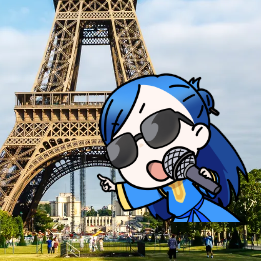cross-posted from: https://lemmy.ca/post/5186904
Unity, the tech company behind one of the most popular engines for creating video games, is scrambling to clarify how a price increase for its services will work, after its announcement Tuesday morning broadly infuriated the game development community.
Why it matters: The fees, which Unity said are essential for funding development of its tech, left many game makers wondering if having a hit game through Unity would cost them more money than they could make.
- Developers spoke throughout the day of delaying their games to switch to rival Epic Games’ Unreal Engine or other services on X, the platform formerly known as Twitter.
- But by the evening, Unity exec Marc Whitten was updating Axios on the policies, potentially defusing some concerns raised by game creators.
Details: The new “Runtime Fee” announced Tuesday morning is tied to a player’s installations of a game, an action that previously didn’t cost developers anything.
- With Unity’s new plan, developers who use Unity’s free tier of development services would owe Unity $0.20 per installation once their game hit thresholds of 200,000 downloads and earn $200,000 in revenue.
- Developers paying over $2,000 a year for a Unity Pro plan would have to hit higher thresholds and would be charged with lower fees.
- The newfee system will begin at the start of 2024.
Yes, but: Game developers, rallying on X, began fuming immediately that any game enjoying a spike in installations due to a big sale, inclusion in a charity bundle or even just by being included in a popular subscription service like Microsoft’s Game Pass, would trigger back-breaking Unity fees.
- “Stop it,” development studio Innersloth, makers of the hit Among Us, tweeted Tuesday evening. “This would harm not only us, but fellow game studios of all budgets and sizes…”
- Another studio, Aggro Crab, called on Unity to reverse its plans, saying that it feared that its next game, set for release to the 25 million subscribers on Game Pass, could incur fees that “threaten the stability of our business.”
The intrigue: Unity has scrambled to clarify and in one key case alter what it has said about its policies around the fees.
Zoom in: After initially telling Axios earlier Tuesday that a player installing a game, deleting it and installing it again would result in multiple fees, Unity’sWhitten told Axios that the company would actually only charge for an initial installation. (A spokesperson told Axios that Unity had “regrouped” to discuss the issue.)
- He hoped this would allay fears of “install-bombing,” where an angry user could keep deleting and re-installing a game to rack up fees to punish a developer.
- But an extra fee will be charged if a user installs a game on a second device, say a Steam Deck after installing a game on a PC.
Between the lines: Runtime fees will also not be charged for installations of game demos, Whitten said, unless the demo is part of a download that includes the full game (early access games would be charged for an installation, he noted).
- Games offered for charity or included in charities will be exempt from the fees. Unity will provide a way for developers to inform Unity that their games are being offered that way, Whitten said.
- As for Game Pass and other subscription services, Whitten said that developers like Aggro Crab would not be on the hook, as the fees are charged to distributors, which in the Game Pass example would be Microsoft.
- Runtime fees will also not be charged for installations of game demos, Whitten said, unless the demo is part of a download that includes the full game (early access games would be charged for an installation, he noted).
Of note: Whitten estimates that only about 10% of Unity’s developers will wind up having to pay any fees, given the thresholds games need to hit.
What they’re saying: “Our core point with this is simply to make sure that we have the right value exchange so that we can continue to invest in our fundamental mission to make sure that we can deliver the best tools for people to make great games.”
- "It’s not fun to get a bunch of angry feedback on any particular day. And I think that that is us needing to clarify some of these points.
- “But we’re we’re listening and we will continue to make sure that we deliver the best that we can.”
Go deeper… Unity CEO: Generative AI will make better games, but won’t steal jobs
There is nothing to “clarify” - Unity is a toxic, predatory company with toxic, predatory leadership and developers and investors need to get out as quickly as possible.
I’m a little out of the loop. How so? Have they always been said way? Edit: I’m an aspiring dev and want to know as much as I can, and if they’re shitty, I wanna know.
They are popular because they were permissive and dead easy to use in… 2008 or so. Indie studios adopted Unity, many went on to great success, and it is now a product with a huge userbase, tons of tutorials, and an industry full of experienced Unity developers.
Unity is successful, entrenched, known, and makes money.
And this is the worst possible situation for a product to be in. The term is “enshittification” and basically means the owners are incentivized to sell out, while new owners are more incentivized to add new ways to extract value than to improve the product meaningfully. This is a death spiral that no products recover from.
It’ll just get worse until in several years all that is left are some patents bought by a patent troll who sues the everliving shit out of anyone still using Unity.
Anyway: Look up Godot. It’s a modern version of what Unity was when it was young and pretty.
Unity has been rent seeking for awhile. In my mind, a big issue is the unity asset store, which apparently is where they actually make most of their money. Unity collects a 30% cut of all sales and imposes pretty restrictive licensing terms. This is annoying, but not a huge deal for things like art assets, but it creates a huge perverse incentive when you look at plugins and tools.
The best way for unity to make money in the business model they’ve created is to add a bunch of seemingly simple but not very comprehensive systems to the engine. Then, rather than refine these features they can wait for 3rd party developers to fill in the gaps with plugins that must be sold on the unity asset store. This allows unity to scoop up a bigger revenue stream on top of the licensing income without having to do any additional work.
I don’t see this being sustainable
Former CEO of EA does EA things, color me shocked.
Apparently he was CEO in mid-2004 when EA bought Renderware and basically killed it.
COINCIDENCE???
He was also CEO of EA when a private equity firm (that he founded and sat on the board of) bought Bioware and then sold it to EA.
Who woulda thunk things would go this way when they hired an ex EA exec …
They’ll either do a complete reversal of the policy once they see the amount of games pulled from store fronts, or implode burying their head in the sand.
They’re going to get sued by all the developers who already put out games with the existing license that Unity is trying to unilaterally change the terms of. They’re trying to charge money for installs on games that are already published and already sold.
What in the Wizards-of-the-Coast is this shit?
I actually cannot figure out where the logic is on this sort of thing (apart from CEOs having big cartoon dollar signs for eyes). You create a product, give it out for free, then get salty when people use your free product and demand payment in retrospect? And not just a ‘commercial licence’ payment, but a cut off the top of every game sold.
I can’t wait for visual effects software companies to start charging James Cameron $0.20 on every ticket sold for Avatar 3.
Or Tesla to start charging their drivers a fee anytime they use their car as a rideshare vehicle… actually I wouldn’t put that one past Emerald Boy.
But an extra fee will be charged if a user installs a game on a second device, say a Steam Deck after installing a game on a PC.
Actually asinine.
Hey now, there’s plenty of good to come out of this: Gamers now have a way to punish asset flips and crypto scam games.
First of all, punishing devs you don’t like is a slippery slope that opens a lot of people to abuse they don’t deserve. Second of all, I would be very surprised if any of those asset flip games are going to be making $200k. Third, they specifically state in the article you won’t be able to install bomb a dev just because you don’t like them.
It’s so weird to see Unity as the MVP on Unreal’s team.
Like, blah blah Unity efficiency aside, this is… not going to go over well.
When you’re making tim sweeny look like a good person you know you’ve fucked up big time.
I give about a year until Unreal does the same, except that they’ll at least have the good graces to waive the fee if games are sold on Epic
Contractually Timed ExclusiveGames Store.Looking forward to Godot finally getting the love and recognition it deserves after this, at least.
Yeah, I think it’s pretty likely that the only reason Unreals terms are sustainable at all at this point is that they are funded by vertical integration using Epics infinite Fortnite coffers. Unity has no such safety harness, and has to squeeze everyone for as much money as possible to be profitable. The moment all of Epics deranged fake consumer rights activist PR starts working and devs and customers actually get locked into their ecosystem at scale they will start tightening the screws on everyone.








